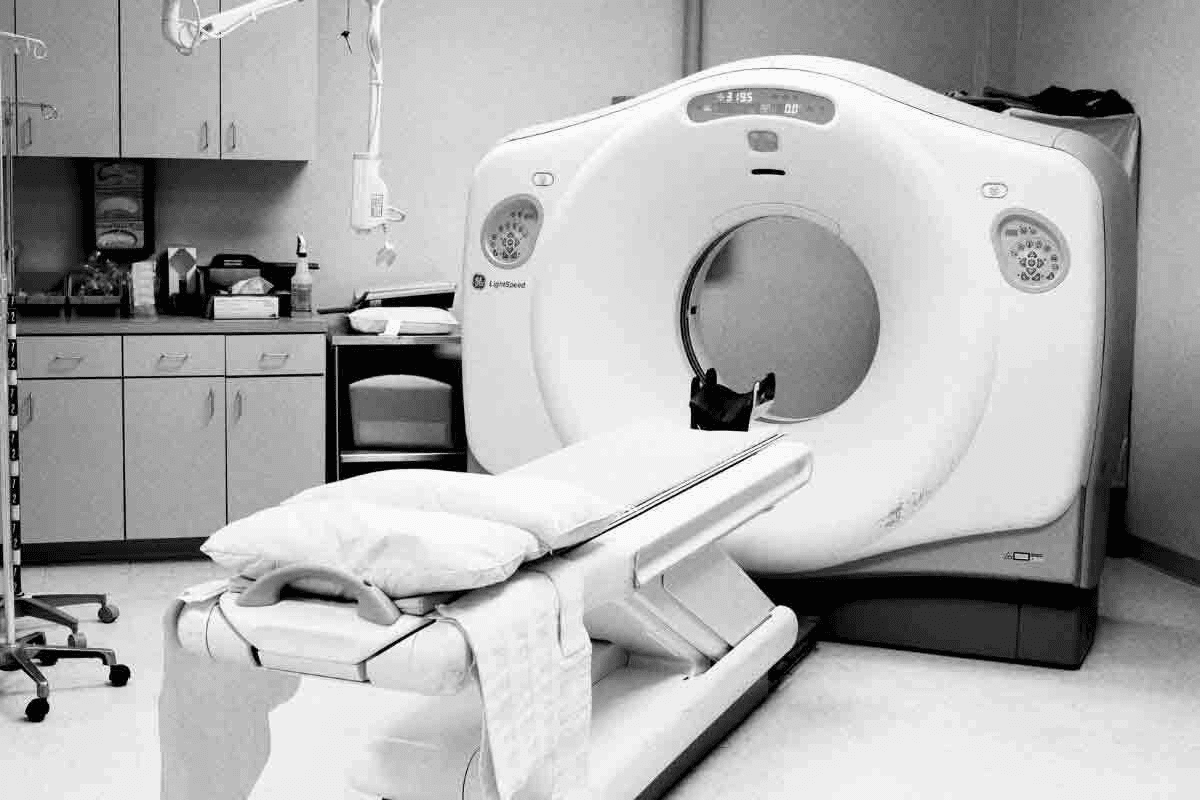
Ever wondered what doctors call that painful, scratchy feeling in your throat? It’s called pharyngitis. This common problem affects millions every year.
What is the sore throat medical termHow Long Do Epidural Steroid Injection Side Effects Last? Pharyngitis is the official medical term for inflammation of the throat.
Pharyngitis means the pharynx, or your throat, is inflamed. It can happen from viruses or bacteria. Knowing why it happens helps us treat it better.
At Liv Hospital, we focus on your health. We use the latest tests and treatments to care for your throat.
Key Takeaways
- Pharyngitis is the medical term for a sore throat.
- It refers to the inflammation of the pharynx.
- Viral and bacterial infections are common causes of pharyngitis.
- Understanding the condition is key for good care.
- Liv Hospital offers expert, patient-centered care for throat health.
Understanding Pharyngitis: The Medical Term for a Sore Throat

Pharyngitis is the medical term for a sore throat. It affects the back of the throat, including the tonsils. Knowing about pharyngitis means understanding the throat’s anatomy and seeing it as a symptom, not a disease itself.
Definition and Anatomy of the Pharynx
The pharynx, or throat, is a tube that connects the digestive and respiratory systems. It goes from the base of the skull to the sixth cervical vertebra. The oropharynx, the middle part, has the tonsils, which help fight off infections.
The throat’s anatomy is complex. Pharyngitis can cause swelling, leading to pain and discomfort.
Pharyngitis as a Symptom vs. a Condition
Pharyngitis is usually a symptom of something else. It can be caused by viruses, bacteria, allergies, or irritants. Seeing it as a symptom helps find the real cause and treat it properly.
Cause | Description | Common Symptoms |
Viral Infection | Caused by viruses such as rhinovirus or influenza | Sore throat, runny nose, cough |
Bacterial Infection | Caused by bacteria such as Group A Streptococcus | Severe sore throat, fever, swollen lymph nodes |
Understanding pharyngitis’ causes and symptoms helps in diagnosing and treating it. Knowing if it’s viral or bacterial is key to effective treatment.
The Sore Throat Medical Term Explained

The term pharyngitis comes from Greek roots. It’s a key term in medical language that’s worth looking into. Pharyngitis is the medical word for a sore throat. Knowing where it comes from can help us understand the condition better.
Etymology and Medical Terminology
The word “pharyngitis” breaks down into “pharynx” and “-itis.” “Pharynx” means the throat, a tube that links the nose to the esophagus. The “-itis” part means inflammation. So, pharyngitis is inflammation of the throat. This helps us understand the condition, which is an inflammation of the throat.
Using precise medical terms is key for clear and accurate diagnosis and treatment. The term pharyngitis shows this precision. It clearly tells us the affected area and the condition’s nature.
Related Medical Terms for Throat Conditions
There are many medical terms for throat issues, each with its own meaning. Knowing these terms can deepen our understanding of throat health and related problems.
- Tonsillitis: This is inflammation of the tonsils, which are lymphoid tissue masses on either side of the throat.
- Laryngitis: This is inflammation of the larynx (voice box), leading to hoarseness or loss of voice.
- Epiglottitis: This is inflammation of the epiglottis, a flap-like structure that covers the larynx entrance during swallowing.
Like pharyngitis, these conditions are caused by inflammation. They can be triggered by infections or irritants. Knowing the specific terms for these conditions is vital for correct diagnosis and treatment.
Common Causes of Pharyngitis
Pharyngitis, or sore throat, is often caused by viruses. These viruses are responsible for most cases. Knowing the causes helps in finding the right treatment.
Viral Causes (90% of Cases)
Viral infections are the main reason for pharyngitis. Viral causes of sore throat include the common cold and flu. These usually get better with rest, water, and pain medicine.
Some common viruses that cause sore throats are:
- Rhinovirus
- Influenza virus
- Adenovirus
- Coronavirus
Bacterial Causes (10% of Cases)
Bacterial causes of sore throat are less common but serious. The main one is strep throat, caused by Group A Streptococcus. Strep throat as an adult needs quick diagnosis and treatment to avoid serious issues.
Cause | Characteristics | Treatment |
Viral Pharyngitis | Caused by viruses like the common cold or flu. Symptoms often include cough, runny nose, and general malaise. | Supportive care: rest, hydration, over-the-counter pain relievers. |
Bacterial Pharyngitis (Strep Throat) | Caused by Group A Streptococcus. Symptoms can include severe throat pain, fever, and swollen lymph nodes. | Antibiotics are necessary to treat strep throat and prevent complications. |
It’s important to know if your sore throat is viral or bacterial. Viral infections are more common and usually get better on their own. But bacterial infections, like strep throat, need antibiotics to avoid serious problems.
Viral Pharyngitis in Detail
Viral pharyngitis is a common illness that affects the pharynx. It’s caused by several viruses. We’ll look into the details of this condition, including the viruses that cause it and how to manage symptoms.
Rhinovirus Infections
Rhinovirus is a top cause of viral pharyngitis. This virus is highly contagious and often leads to the common cold. Symptoms include a sore throat, runny nose, and cough. While rhinovirus infections usually get better on their own, they can be quite uncomfortable.
Influenza-Related Throat Pain
Influenza, or the flu, is another major cause of viral pharyngitis. Influenza-related throat pain can be severe. It’s often accompanied by fever, body aches, and fatigue. The flu can lead to serious complications, mainly in the elderly and young children.
Adenovirus Infections
Adenovirus is a group of viruses that can cause pharyngitis. Adenovirus infections can lead to symptoms like sore throat, fever, and conjunctivitis. These infections are common and can affect people of all ages.
Coronavirus and Throat Symptoms
Coronavirus, including SARS-CoV-2, the virus behind COVID-19, can also cause viral pharyngitis. Throat symptoms associated with coronavirus can range from mild sore throat to severe throat pain. It’s important to understand how coronavirus causes pharyngitis for proper diagnosis and treatment.
By knowing the different viruses that cause pharyngitis, we can better manage it. Whether it’s rhinovirus, influenza, adenovirus, or coronavirus, each virus has its own characteristics. These characteristics affect symptoms and treatment options.
Bacterial Pharyngitis: Focus on Strep Throat
Strep throat is a big problem caused by Group A Streptococcus bacteria. It’s common and can lead to serious issues if not treated.
Group A Streptococcus Infection
Group A Streptococcus (GAS) can cause many infections, from mild to severe. It spreads easily through contact with respiratory secretions, like coughing or sneezing.
Symptoms of strep throat include a very sore throat, fever, and swollen lymph nodes. Sometimes, a rash called scarlet fever appears too.
How Strep Throat Differs in Adults
Strep throat isn’t just for kids; adults can get it too. Adults often have more severe symptoms and complications.
Adults face:
- More severe symptoms
- Higher risk of serious problems like rheumatic fever or kidney inflammation
- Harder to diagnose because symptoms can be similar to other illnesses
It’s important to know these differences for proper diagnosis and treatment. If symptoms don’t get better or get worse, see a doctor.
Recognizing Pharyngitis Symptoms
It’s important to know the signs of pharyngitis to tell if it’s viral or bacterial. Pharyngitis, or a sore throat, can have many causes. Knowing the symptoms helps you get the right medical help.
Common Symptoms of Viral Pharyngitis
Viral pharyngitis is the most common cause of sore throats. Symptoms include:
- Sore or scratchy throat
- Difficulty swallowing
- Mild fever
- Swollen lymph nodes in the neck
- Cough or runny nose
- Hoarseness or loss of voice
These symptoms are usually not too bad and can come with other viral infections like the cold or flu.
Distinctive Signs of Strep Throat
Strep throat, caused by bacteria, has more serious symptoms. These include:
- Severe throat pain that comes on quickly
- Pain when swallowing
- Fever, often high (over 101°F)
- Swollen, tender lymph nodes in the neck
- White or yellow patches on the tonsils
- Red, swollen tonsils
Strep throat doesn’t usually have a cough or runny nose. Its symptoms are more intense than viral pharyngitis.
Symptom | Viral Pharyngitis | Strep Throat |
Throat Pain | Mild to Moderate | Severe |
Fever | Mild | High (often over 101°F) |
Cough/Runny Nose | Common | Rare |
Swollen Lymph Nodes | Present | Present and Tender |
Tonsillar Exudate | Less Common | Common (white or yellow patches) |
Knowing the differences helps you figure out if your sore throat is viral or bacterial. If your symptoms are severe or you’re not sure, see a doctor. They can give you the right diagnosis and treatment.
Diagnosing the Cause of Pharyngitis
To treat pharyngitis well, we need to know if it’s viral or bacterial. We use a mix of clinical checks and tests to find out.
Physical Examination Techniques
First, we do a detailed physical check. We look at the throat for signs like redness and swelling. We also check for fever and other symptoms.
Key examination findings include:
- Throat redness and swelling
- Presence of exudates or pus on the tonsils
- Fever
- Cervical lymphadenopathy
Rapid Strep Tests
If we think it’s a bacterial infection, like strep, we do a rapid strep test. This test gives quick results, helping us tell if it’s viral or bacterial.
Throat Cultures
Even though rapid strep tests are fast, throat cultures are the best for strep. We take a throat swab and send it to the lab. It takes longer but is more accurate.
Diagnostic Method | Speed of Results | Sensitivity |
Rapid Strep Test | Minutes | Moderate |
Throat Culture | 24-48 hours | High |
We use physical checks, rapid strep tests, and throat cultures together. This way, we can accurately find out what’s causing pharyngitis and treat it right.
Duration and Progression of Sore Throat
Knowing how long a sore throat lasts is important. It helps you plan and decide on treatment. The time it takes to get better depends on the cause, like viral or strep throat.
Typical Timeline for Viral Pharyngitis
Viral pharyngitis usually gets better in a week. People often start feeling better in 3 to 5 days. But, some symptoms can last up to 7 to 10 days.
The main thing for viral pharyngitis is to find ways to feel better. It’s a condition that gets better on its own.
To manage symptoms, you can use over-the-counter pain relievers, drink lots of water, and rest your voice. Remember, antibiotics don’t work for viral infections. They should only be used if there’s a bacterial infection too.
Expected Duration of Strep Throat
Strep throat, caused by Group A Streptococcus, has a different timeline. With the right antibiotics, symptoms start to get better in 24 to 48 hours. Most people feel much better in 3 to 5 days. The infection is usually not contagious after 24 hours of antibiotics.
It’s very important to finish all the antibiotics your doctor prescribes. This makes sure the infection is gone and prevents serious problems. Without treatment, strep throat can last longer and cause serious health issues.
In short, both viral and strep throat can be uncomfortable. But, they get better at different rates and need different treatments. Knowing these differences helps you manage your symptoms better and when to see a doctor.
Treatment Approaches for Pharyngitis
Understanding the cause of pharyngitis is the first step in treatment. The approach changes based on whether it’s viral or bacterial.
When Antibiotics Are Necessary
Antibiotics are key for bacterial pharyngitis, like strep throat. They help shorten and lessen symptoms. They also prevent serious issues like rheumatic fever.
Why Most Sore Throats Don’t Need Antibiotics
Most sore throats are viral, and antibiotics won’t work. Overusing antibiotics can make them less effective later. We only use antibiotics when a bacterial infection is confirmed.
Over-the-Counter Pain Management
For both viral and bacterial pharyngitis, OTC pain relief helps. Medications like acetaminophen or ibuprofen can ease pain and fever. Drinking plenty of water and using throat lozenges or salt water gargles also help.
In summary, the right treatment depends on knowing the cause. Antibiotics are vital for bacterial infections. But, most viral cases can be managed with OTC pain relief and supportive care.
Potential Complications of Untreated Strep Throat
Untreated strep throat can lead to serious complications. Timely treatment is key. If strep throat is not treated, it can cause severe health issues.
Rheumatic Fever Risk
Rheumatic fever is a major complication of untreated strep throat. It happens when strep throat is not treated quickly or correctly. This leads to an autoimmune response that causes inflammation in the heart, joints, and other tissues.
Rheumatic fever can cause long-lasting heart valve damage. This may lead to chronic heart conditions. The risk of rheumatic fever shows why early diagnosis and treatment of strep throat are so important.
Glomerulonephritis and Other Complications
Untreated strep throat can also cause glomerulonephritis. This is an inflammation of the kidney’s filtering units. It can lead to kidney damage and, in severe cases, kidney failure. Other possible complications include:
- Otitis media (middle ear infection)
- Sinusitis
- Meningitis (in rare cases)
- Toxic shock syndrome
These complications show why it’s vital to treat strep throat quickly and effectively.
Complication | Description | Potential Long-term Effects |
Rheumatic Fever | Autoimmune response causing inflammation in the heart, joints, and other tissues | Heart valve damage, chronic heart conditions |
Glomerulonephritis | Inflammation of the kidney’s filtering units | Kidney damage, possible kidney failure |
Otitis Media | Middle ear infection | Hearing loss, recurrent infections |
Knowing these complications highlights the need to seek medical help if strep throat symptoms don’t get better or get worse.
Conclusion
Understanding pharyngitis, or a sore throat, is key to managing it well. We’ve looked at what causes it, like viruses and bacteria. We’ve also talked about the signs of each.
Getting a correct diagnosis is the first step to treating pharyngitis. Knowing the symptoms and causes helps people know when to see a doctor.
To handle a sore throat, you need to take care of yourself and sometimes use antibiotics. Knowing why you have pharyngitis is the first step to feeling better.
We’ve stressed how important it is to get the right treatment to avoid serious problems. Being informed and taking action can help manage symptoms and prevent long-term issues.
FAQ
What is the medical term for a sore throat?
The medical term for a sore throat is pharyngitis. It means inflammation of the pharynx.
What are the common causes of pharyngitis?
Most cases of pharyngitis come from viral infections. But, a big part is also from bacterial infections, like strep throat.
Will a throat infection go away on its own?
Viral pharyngitis usually gets better with rest and drinking water. But, bacterial infections like strep throat might need antibiotics.
Can a throat infection be caused by bacteria?
Yes, bacteria can cause pharyngitis. For example, strep throat is caused by group A streptococcus.
How long does throat hurt with strep throat?
Throat pain from strep throat usually lasts 3-5 days with antibiotics. Without treatment, it can last up to a week or more.
Does sore throat need antibiotics?
Not all sore throats need antibiotics. Viral pharyngitis doesn’t need them. But, bacterial infections like strep throat do.
What are the symptoms of strep throat in adults?
Adults with strep throat have severe throat pain, fever, swollen lymph nodes, and white patches on the tonsils.
How is strep throat diagnosed?
Doctors use physical exams, rapid strep tests, and throat cultures to diagnose strep throat.
What are the possible complications of untreated strep throat?
Untreated strep throat can cause serious problems like rheumatic fever and glomerulonephritis.
How can pharyngitis symptoms be managed?
You can manage pharyngitis symptoms with over-the-counter pain meds, rest, and drinking plenty of water.
References
National Center for Biotechnology Information. (2025). What Is the Medical Term for a Sore. Retrieved from https://www.ncbi.nlm.nih.gov/books/NBK519550/[9






